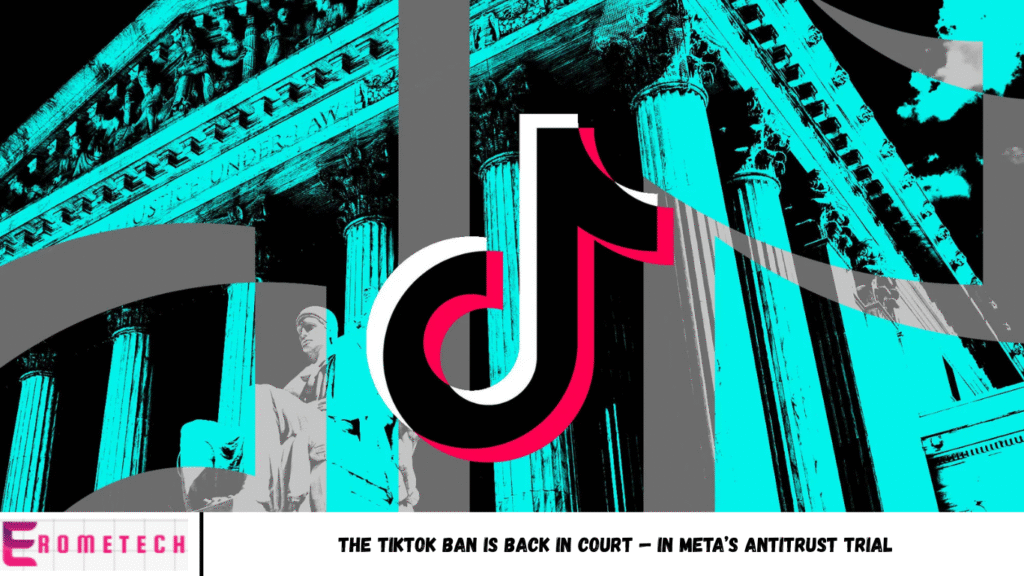TikTok returned to a Washington, DC courthouse this week, not to defend itself, but to support the government in a major antitrust case.
On Wednesday, Adam Presser, TikTok’s head of operations and trust and safety, testified in the Federal Trade Commission’s trial against Meta. Held in the same courthouse where judges once ruled TikTok could be banned in the US, this time the app was positioned as a competitor in a case about market dominance.
Presser explained how TikTok interacts with Meta’s platforms within the FTC-defined category of “personal social networking,” which includes only Meta’s services, Snapchat, and the smaller app MeWe.
During the proceedings, both sides referenced TikTok’s filings from its legal battle against the 2024 divest-or-ban law that required ByteDance, its Chinese parent company, to sell its US operations. The FTC highlighted TikTok’s statement that its services were not easily replaceable — suggesting it isn’t interchangeable with apps like Instagram.
Many creators echoed this, warning that losing TikTok would threaten their livelihoods, as Instagram lacks the same monetization tools and growth potential.
Instagram was one of the apps that quickly benefited when TikTok briefly went offline in the US near the divestment deadline — a point Meta emphasized during the trial.
Meta highlighted how engagement on both Instagram and Facebook surged during TikTok’s short absence, far outpacing any gains seen by Snapchat. The company is also drawing a comparison between TikTok’s growth, backed by ByteDance and the Musical.ly acquisition in 2017, and Instagram’s rise under Meta’s ownership.
By doing so, Meta aims to challenge the FTC’s claim that acquiring Instagram was merely a way to eliminate competition. Instead, Meta argues, Instagram thrived due to the strategic support it received — support the platform might not have achieved on its own.
TikTok has cautioned that separating from ByteDance would severely disrupt its operations, requiring years to rebuild critical systems and making content moderation for a US-only version financially unsustainable.
Meta, in turn, claims it gave Instagram similar operational advantages, helping it grow more securely and reliably than it could have alone.
The FTC disputes this, asserting Instagram could have addressed those challenges independently and still succeeded without Meta’s acquisition.
For now, former President Trump’s delay of the TikTok ban has paused what could have been a real-time test of where users would migrate without the app — a test that may remain incomplete by the time Meta’s trial concludes.
Frequently Asked Question
Why is TikTok involved in the FTC’s antitrust case against Meta?
TikTok is participating as a government witness, offering insight into how it competes with Meta’s platforms like Instagram and Facebook in the social networking market.
What is the FTC alleging against Meta in this trial?
The FTC claims Meta acquired Instagram not just to compete, but to eliminate a rising competitor, arguing the acquisition stifled innovation and consumer choice.
How did TikTok respond to the 2024 divest-or-ban law?
TikTok warned that separating from ByteDance would be highly disruptive, potentially disabling key functions and making the app’s operations in the U.S. unsustainable.
Did Instagram and Facebook benefit from TikTok going offline temporarily?
Yes, during a brief period when TikTok paused its U.S. operations, Meta reported noticeable spikes in engagement on both Instagram and Facebook, suggesting users quickly shifted platforms.
What impact could Trump’s delay of the TikTok ban have on the case?
The delay prevents a real-world test of how users and creators would react without TikTok, which could have provided valuable context during the Meta trial.
Conclusion
Ongoing antitrust trial between the FTC and Meta, with TikTok stepping in as a witness, underscores the complex and evolving dynamics of the social media industry. While Meta defends its acquisition of Instagram as a growth-driven move, the FTC argues it was a strategic effort to eliminate competition. TikTok’s warnings about the consequences of separating from ByteDance further highlight how deeply intertwined technology, regulation, and business strategies have become. As the legal battle unfolds and political decisions delay potential TikTok bans, the future of digital platforms — and the creators who rely on them — remains uncertain. This case could set a precedent for how tech giants are regulated and how innovation is protected in a rapidly changing digital landscape.


